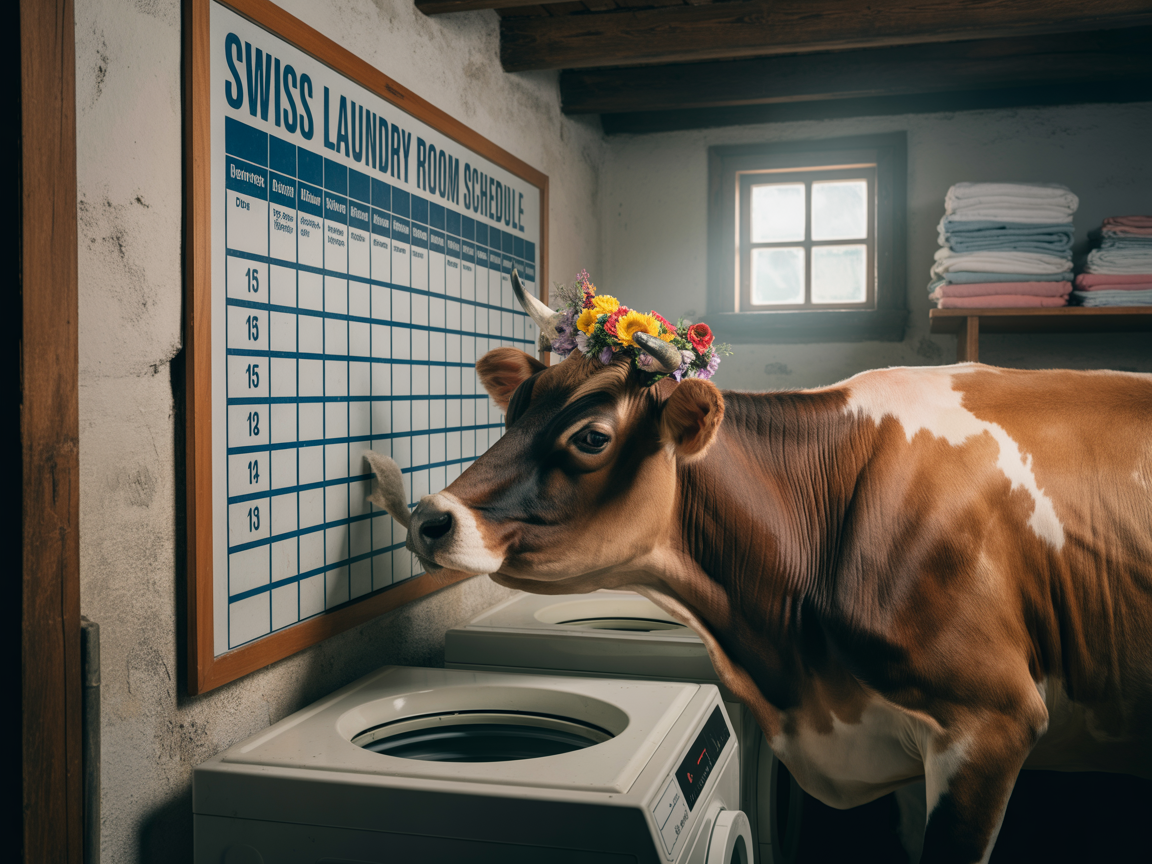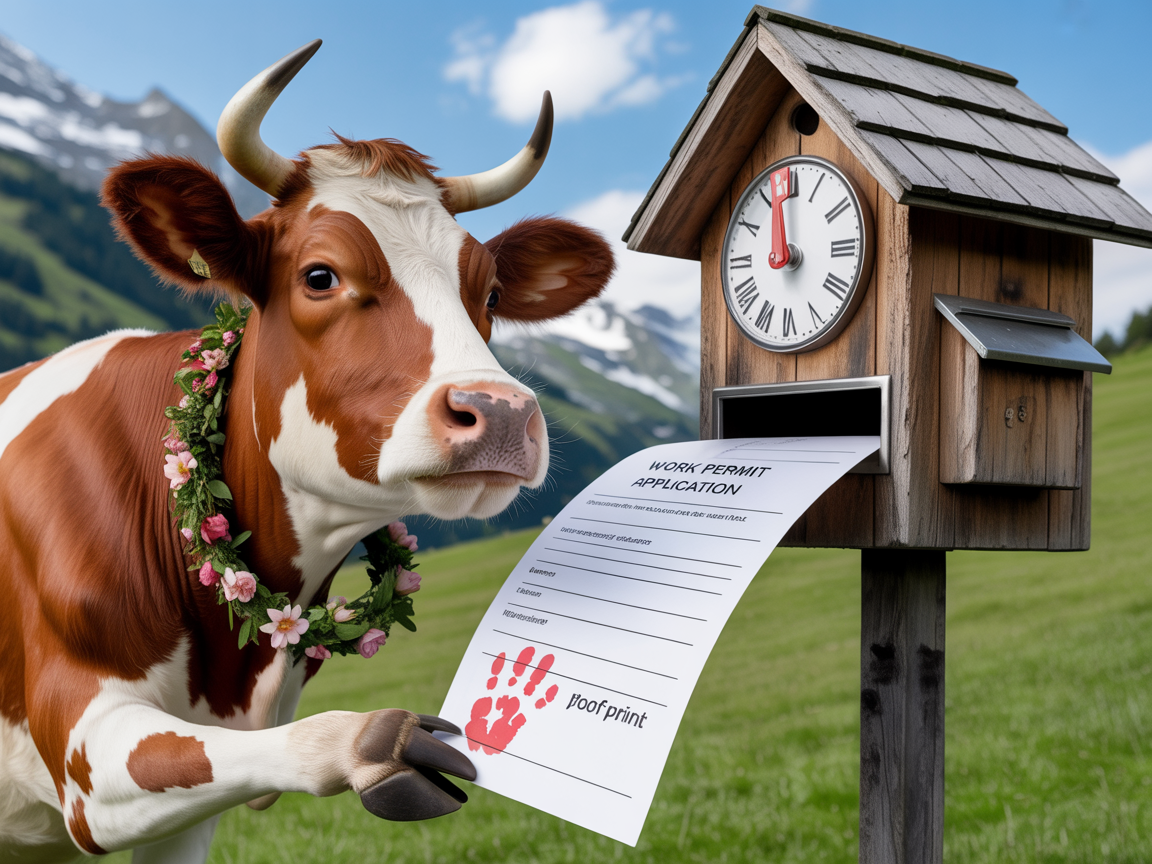Moving to Switzerland is an exciting adventure, offering a high quality of life, stunning nature, and a well-ordered society. However, even in this idyllic setting, expats can experience culture shock. Understanding and adapting to local Swiss customs and etiquette is key to a smoother integration and a more enriching experience. This guide will help you navigate some common cultural nuances and offer tips for thriving in your new Swiss home.
What is Culture Shock, and Why Switzerland?
Culture shock is the feeling of disorientation, confusion, or anxiety that can arise when you move from a familiar culture to an unfamiliar one. It’s a normal part of the adaptation process and can occur even in countries that seem culturally similar to your own. It often progresses through phases:
- Honeymoon: Initial excitement and fascination with the new culture.
- Frustration/Negotiation: Differences become more apparent and can lead to irritation, confusion, or homesickness.
- Adjustment: You begin to understand and adapt to the new culture, developing coping mechanisms.
- Adaptation/Mastery: You feel comfortable and can navigate the new culture with ease, often integrating aspects of it into your own identity.
Even though Switzerland is a modern, highly developed Western European nation, its distinct cultural norms – valuing punctuality, order, reserve, and adherence to rules – can sometimes surprise or challenge newcomers.
Key Swiss Customs and Etiquette That Might Surprise You
Being aware of these aspects can ease your transition:
1. The Sacredness of Punctuality
- What it means: Punctuality is paramount in Switzerland, for both professional and social engagements. Being on time means being exactly on time, or even a few minutes early.
- Expat tip: If you anticipate being even 5 minutes late for an appointment or meeting, it’s courteous to call ahead and inform the person. “Fashionably late” is generally not appreciated.
2. Communication: Directness and Initial Reserve
- Directness: Swiss communication can be quite direct and to the point, which some cultures might perceive as blunt. It’s usually not intended to be rude but rather efficient and honest.
- Reservedness: Swiss people can be initially reserved or formal with people they don’t know well. Friendships often build slowly, but once formed, they tend to be deep and loyal. Small talk with complete strangers is less common than in some other cultures.
- Expat tip: Don’t be discouraged by initial reserve. Be patient, polite, and genuine. As relationships develop, you’ll find Swiss people to be warm and welcoming.
3. Rules, Rules, Rules (and the Beauty of Order)
- Adherence to Rules: Switzerland is well-known for its love of order and rules, which govern many aspects of daily life, from highly organized recycling systems to traffic laws and conduct on public transport.
- Communal Living: In apartment buildings, specific house rules (Hausordnung) regarding laundry schedules, use of common areas, and noise are common and expected to be followed.
- Expat tip: While it might seem like a lot at first, these rules contribute to the smooth functioning and high quality of life in Switzerland. Understanding and respecting them is key to harmonious living.
4. Shhh! Understanding Quiet Hours (Ruhezeit)
- Strict Observance: Quiet hours are taken very seriously. This generally includes:
- Evenings (e.g., after 10 PM until 6 or 7 AM)
- Lunchtimes (often 12 PM to 1 PM)
- All day on Sundays and public holidays.
- What it means: No loud noises like drilling, hammering, vacuuming, playing loud music, mowing the lawn, or even running noisy appliances like washing machines during these times.
- Expat tip: Check your apartment building’s specific house rules for quiet hours. This is one of the most common areas where expats unintentionally cause friction with neighbors.
5. Greetings: Handshakes, Titles, and Cheek Kisses
- Formal Greetings: When meeting someone for the first time, especially in a professional context or with older individuals, a firm handshake with eye contact is standard. Use formal titles (Herr/Frau + Last Name in German-speaking parts; Monsieur/Madame + Last Name in French-speaking parts) until invited to use first names.
- Informal Greetings: Among friends and acquaintances, three alternating cheek kisses are common (starting with the right cheek usually, but it can vary). This is more prevalent in French and Italian-speaking regions but also practiced in German-speaking areas.
- Expat tip: When in doubt, a polite handshake is always a safe bet. Observe how others greet each other.
6. Socializing: Invitations, Gifts, and the Apéro Culture
- Invitations: Being invited to someone’s home is a significant gesture.
- Gifts: If invited for a meal, it’s customary to bring a small gift for the host, such as a bottle of wine, good quality chocolates, or flowers (unwrap flowers before giving; avoid red roses unless romantic, or chrysanthemums/white asters as they are associated with funerals).
- Planning: Social engagements are often planned well in advance. Spontaneity is less common than in some cultures.
- Apéro: A popular Swiss social custom – an informal gathering for pre-dinner drinks (wine, beer, sparkling wine) and light snacks (nuts, crisps, olives, cheese, dried meats). It can be hosted at home, a bar, or even at work.
- Expat tip: If you invite Swiss guests, be precise about the start time. Punctuality applies to hosting too!
7. The Swiss Passion for Cleanliness and Tidiness
- High standards of cleanliness and order are expected in both public and private spaces. Littering is heavily frowned upon.
8. Environmental Consciousness: Recycling and Beyond
- Switzerland has one of the most sophisticated recycling systems in the world. Sorting waste meticulously (PET, glass by color, aluminum, tin cans, paper, cardboard, organic waste, batteries, etc.) is a civic duty.
- You’ll often need to purchase specific taxed bags for general rubbish.
- Expat tip: Familiarize yourself with your local commune’s recycling rules and schedule immediately. Your neighbors or local municipal office can provide guidance.
9. Regional Variations: Not All Swiss Are the Same!
- Remember that Swiss customs and even temperament can vary significantly between the German-speaking (often perceived as more direct and reserved), French-speaking (perhaps more outwardly formal but also valuing bonhomie), and Italian-speaking (often seen as more expressive and relaxed) regions.
Recognizing the Signs of Culture Shock
Common feelings associated with culture shock include:
- Frustration with differences
- Feeling isolated or misunderstood
- Idealizing your home culture and being overly critical of Swiss ways
- Irritability, fatigue, or changes in eating/sleeping patterns
- Difficulty forming connections
Adapting and Thriving: Tips for Overcoming Culture Shock
- Be Observant and Open-Minded: Try to understand the context behind customs rather than judging them by your own cultural standards.
- Learn the Local Language: This is perhaps the single most important step for integration and understanding.
- Understand the “Why”: Often, rules and customs have historical or practical reasons. Knowing these can foster appreciation.
- Get Involved Locally: Join “Vereine” (clubs/associations for sports, music, hobbies), volunteer, or attend local events. This is one of the best ways to meet Swiss people.
- Connect with Other Expats: Sharing experiences can be very helpful. Check out expat groups found via ReloFinder.ch or other online platforms. However, also make a conscious effort to build relationships with locals.
- Be Patient with Yourself: Adaptation is a gradual process. There will be good days and challenging days.
- Maintain Your Hobbies and Stay Connected: Keep up with activities you enjoy and maintain contact with friends and family back home.
- Explore Switzerland: Discovering the country’s beauty and diversity can be a great antidote to feeling isolated.
- Ask Questions Politely: If you’re unsure about a social custom or rule, it’s usually okay to ask a Swiss friend, colleague, or neighbor for clarification.
- Seek Support if Needed: If culture shock feels overwhelming, don’t hesitate to talk to someone. Relocation services, such as Prime Relocation (discoverable on ReloFinder.ch), often provide cultural orientation and settling-in support that can ease this transition significantly.
FAQ: Swiss Culture & Etiquette for Expats
Q1: Are Swiss people unfriendly? A: Swiss people are often initially reserved with strangers, which can sometimes be misinterpreted as unfriendly. However, once you get to know them, they are generally very kind, loyal, and reliable friends. Building relationships takes time.
Q2: What’s the biggest mistake an expat can make regarding Swiss etiquette? A: Being consistently late for appointments is a major faux pas. Another would be loudly disregarding quiet hours or not making an effort with recycling – these show a lack of respect for communal norms.
Q3: How important is recycling in Switzerland? A: Extremely important. It’s taken very seriously, and there are detailed rules for sorting different materials. Not adhering to recycling rules can lead to social disapproval or even fines in some communes.
Q4: Is it okay to be spontaneous when making plans with Swiss people? A: While not impossible, Swiss social life tends to be more planned. Inviting someone for dinner “tonight” might be less common than suggesting a date a week or two in advance. However, Apéros can sometimes be more spontaneous.
Q5: How can I make Swiss friends? A: Joining local clubs (Vereine) based on your hobbies (sports, music, hiking, etc.) is one of the best ways, as it provides a shared interest and regular interaction. Learning the local language is also key. Be patient, show genuine interest, and friendships will develop.
Disclaimer: Cultural norms can be nuanced and vary by region and individual. This guide offers general observations. Always be observant and respectful in your interactions.





